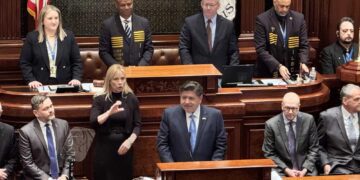Teachers should reject the flawed 1619 Project. Max Eden writes.
Historians, journalists, and politicians frequently accuse one another of twisting history to advance political agendas—and the accused parties always deny the charge. By contrast, the 1619 Project’s curriculum openly encourages such historical revisionism. Its “reading guide” aims to ensure that students don’t miss core partisan talking points. Jamelle Bouie’s “Undemocratic Democracy,” for example, an essay that draws a line from John Calhoun’s nullification philosophy to Eric Cantor’s hardball budget-negotiation tactics, asks: “How do nineteenth-century U.S. political movements aimed at maintaining the right to enslave people manifest in contemporary political parties?” Students must not miss the point that everything that Republican politicians do, even if “the goals may be color blind,” is “clearly downstream of a style of extreme political combat that came to fruition in defense of human bondage.”
For the essay “Capitalism: In Order to Understand the Brutality of American Capitalism, You Have to Start on the Plantation,” the reading guide asks: “What current financial systems reflect practices developed to support industries built on the work of enslaved people?” One answer, suggested in the key terms, is home mortgages—because slaves were once used as collateral. Another acceptable answer is the collateralized debt obligation, a complex structured-finance product developed in the 1980s—because slave-traders had securitized assets and debts (though, the author admits, they were not the first in history to do so).
[Max Eden, "A Divisive, Historically Dubious Curriculum," City Journal, December 3]







